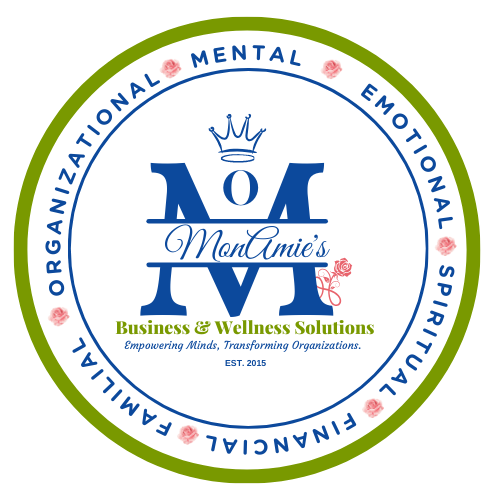Top 5 Strategies to Support Your Children As They Head Back to School
Back-to-school season is here, and students across the country are heading back to their classrooms. In addition to the supplies, students are also carrying worries and fears about the pandemic, monkeypox, school safety, and social pressures from social media and trying to 'fit in' with other kids. Students are also still processing grief, loss, and isolation from the pandemic. These traumatizing events are leading to more mental health issues amongst school-age children.
Although most parents know their children well, it is often difficult for children to articulate their feelings clearly. On top of all the other things our children have encountered over the past few years, bullying is also still a significant concern and can lead to mental health issues.
As your student gears up to start his or her new school year, let's talk about ways you can help your child balance emotions and reduce worries about this upcoming school year.
Help your child become more comfortable talking about feelings.
How well do you know your child/teen? Unfortunately, as busy parents, we can sometimes miss essential cues/signals that our children are anxious or depressed. I'll be the first to admit that there have been times when I was so tired that I paid very little attention to my kids as I was dropping them off and picking them up from school.
One day we were sitting at the dinner table when my oldest son shared with us that his younger brother, who was in the first grade, would cry every morning while walking to class. We never knew this before that night when we were talking to them. When I asked why he was crying, he responded, "because I was sad that you'd left, and I'd have to be at school for a long time." He also told us that a fifth-grade student had previously chased and pinched his arm, so he was afraid.
His older brother, who was in the second grade then, also shared that he hated going to school because he constantly worried about his grades and felt it was too hard. That morning, I remember crying during my commute to work because I was previously unaware that this was how they felt. In hindsight, I am happy we had that discussion at dinner and that our boys felt comfortable enough to share those feelings.
This conversation led me to listen more than I talk when spending time with them. If your children know you will be attentive when speaking with you, they will be more open to sharing their feelings.
Make sure your child does not feel like a burden to you.
One of the most important things you can do as a parent is to ensure your children don't feel like they are bothering you. Many parents balance working remotely, and some even work multiple jobs due to inflation. If we're honest, our attention is often on our mobile devices instead of our children. No one loves to hear the infamous "mom, mom, mom, mom, momma, mommy; I'm talking to you;" or "Dad, daddy, daddy, daddy, why aren't you answering me?" Our kids repeatedly call our names, even when we look right at them! Even though this can cause you to become frustrated, remember that you are the person they seek approval from first; this will not always be the case. As they grow, they make new friends and may begin seeking approval from other sources. It is essential to be available when they ask for your attention.
Make time and space for your child/teen to come to talk to you, and let them know they can speak to you about anything. The last thing you want, as a parent, is for your child to try to deal with mental health challenges in secret.
Meet your children where they are, not where you want them to be.
Our middle child, now nine years old, has recently been exhibiting signs of insomnia and excessive fears about sleeping in his room. It never fails: once we've said our prayers at night and given our kids their nightly 'hugs and kisses,' they come into our bedroom within ten minutes. Our son recently told us that his "anxiety makes him feel bad." He went on to say that at night, he starts seeing things and gets scared. Although he has never been diagnosed with an anxiety disorder, I noticed his anxiety symptoms when he was as young as three. I knew the signs to look for because he reminded me so much of myself. Initially, I wasn't as gentle with him as I should have been because I felt I was telling him what he needed to hear. All I wanted was for him to be brave and less emotional. But, where I was failing was expecting him to be where I wanted him to be instead of meeting him where he was. I was so tired and irritable after working long days that I didn't have the energy to meet him where he was. Years ago, I woke up and realized I needed to change how I supported him.
It can be very challenging if you're a parent supporting a child with a mental illness, but you can do it. Place your expectations aside, and ask your child what they need you to do to support them or make them feel better. You also don't always want to make yourself a part of the solution; otherwise, your child/teen will grow dependent on you. Create a balance between what you do for them and what you teach them how to do for themselves.
Maintain an open line of communication about social pressures and bullying.
Unfortunately, school is not always fun or psychologically safe for all students. Some students see school as a place where they must pretend to be someone they are not to be liked by their classmates. Societal pressures, especially social media, are plaguing our children in ways we didn't deal with while growing up. School can be very lonely for some students with introverted personalities.
As a parent, you must help your children define themselves without consideration of what others think of them. In our family, we talk about everything. We discuss peer pressure and how it can cause you to make poor decisions. We also try to build our children's self-confidence so they don't seek approval or affirmation from their peers. We ask each child how they feel about themselves and what things they love about themselves. We also talk about things they can do better when they make mistakes.
Connect your child with mental health resources.
Finally, if you're working through providing support to your child/teen and their situation isn't improving, you must connect them with professional mental health resources. Every public school has a licensed counselor on staff. Your counselor is a great person to help your child sort out feelings in a private, confidential way. You should also discuss your concerns with your child's pediatrician. The school counselor and/or physician will provide support and connect you with a private counselor. Your doctor may also discuss medication options that may suit your child.
If your children are learning in a virtual or homeschool environment, this information is still very relevant to you. You will not have access to a public school counselor for professional support, so you must find a private therapist that will work well for your family.
_____________________________________________________________________
At Mon Amie's Mental Business and Wellness Solutions, our mission is to create inclusive and psychologically safe workplace environments where support and well-being are prioritized. We are dedicated to advancing mental health literacy, eradicating the stigma surrounding mental health conditions, and promoting educational equity for students with ADHD. We are committed to the well-being of our community, and we actively address and mitigate factors contributing to trauma and mental health issues within the diverse communities we serve. Through our unwavering dedication, we aspire to create a world where every individual can thrive emotionally, mentally, and academically.
We provide training programs to help our clients navigate their journey with various types of mental illness and are centered around stress management, healthy boundaries, time management, and goal-setting. We also create inspirational designs and wellness products that are a positive daily reminder to people worldwide. Our apparel, accessories, books, and other products are thoughtfully designed and selected to bring peace, tranquility, and happiness to those we are blessed to support.
MonAmie's Business and Wellness Solutions does not provide medical advice, diagnosis, counseling, therapy services, or treatment. Any information published on this website or by this brand is not a substitute for medical advice. You should not take any action before consulting with a healthcare professional.


